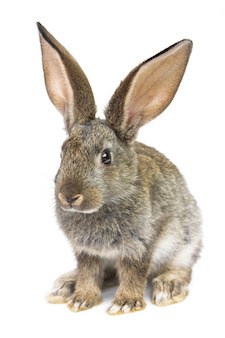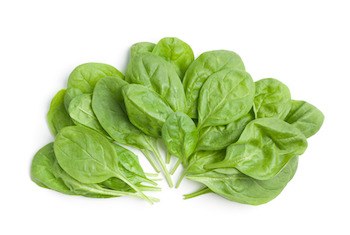The staple of your rabbit’s diet is fresh hay, with pellets in moderation, and some fruits and vegetables to make sure your rabbit gets all the vitamins and minerals it needs to thrive. But can rabbits eat spinach? The answer is yes, with a caveat: moderation.
As it happens, rabbits need mostly green, leafy vegetables in their diet, and spinach fits the bill. However, spinach is high in oxalic acid, which is toxic in high amounts both for bunnies and humans.
PROS
- Spinach is low in calories. Considering that domestic rabbits are prone to obesity because they don’t exercise as much as rabbits in the wild and because their human parents tend to overdo treats, it’s a definite benefit that spinach has a low-calorie content.
- Spinach is rich in alpha-lipoic acid. This antioxidant reduces glucose levels and fights free radicals, and so it’s beneficial in preventing diabetes and other chronic diseases.
- Spinach packs a lot of chlorophyll. This substance that makes spinach green has been proven to work in preventing cancer growth. Unfortunately, rabbits are prone to reproductive cancers, as well as other cancers.
- Spinach is filled with beta-carotene, a substance that has been proven to fight respiratory issues that smaller rabbits breeds are prone to.
- Spinach is filled with vitamins and minerals. Potassium assists heart functioning, vitamin A and C keep the hair healthy, and vitamin K strengthens the bones in both rabbits and humans.
- Spinach packs high fiber content. Rabbits are herbivores, so their digestive systems have adapted to fermenting fibrous foods. Because it’s high in fiber, spinach doesn’t damage your rabbit’s digestive system.
- Spinach is crunchy. Rabbits’ teeth never stop growing, so they need to be trimmed naturally. Spinach leaves can help them do exactly that.
CONS

- Spinach is high in oxalic acid. This substance makes minerals like calcium and magnesium connect, and the resulting compound is no longer soluble. As such, the minerals can’t be broken down in your bloodstream and they can’t serve their original purposes. Instead, the resulting compound gets stuck in all sorts of places, such as the rabbit’s bladder, where it produces bladder stones.
- Spinach roots are high in sugar. Unlike leaves or stems, spinach roots are what makes the spinach go stronger. Roots have more sugar because they’re the energy source of the entire plant. Although your rabbit can eat spinach roots, it can eat a smaller amount than its serving of leaves.
How Much Spinach Can Rabbits Eat? Recommendations And Tips
- Your rabbit should eat spinach once or twice per week.
- Give your rabbit four different leafy greens per day, changing it up every week.
- Your rabbit needs one cup of green vegetables per day per 2 pounds of bodyweight.
- Spinach contains fewer oxalates during the autumn than summer or spring.
- Baby spinach has fewer oxalates than adult spinach, but this depends on the type of soil used for growing this spinach, as well as the season.
- Avoid giving cooked spinach to your rabbit because cooking lowers the intake of micronutrients and it’s mushy, so it can give your rabbit diarrhoea.
- Avoid canned spinach too because it has too much salt and water.
- Avoid frozen spinach because it decreases the fiber content.
- Don’t store spinach leaves in a pile, even if your bunny eats slower because they will get mouldy.
- Avoid giving spinach to your baby rabbit unless he or she is older than three months.
- Wash the spinach carefully before giving it to your rabbit in case it has pesticides.
- Introduce spinach slowly into your rabbit’s diet. A few small pieces are enough for the first time. Watch for allergic reaction or digestive issues and increase your rabbit’s spinach servings gradually.

